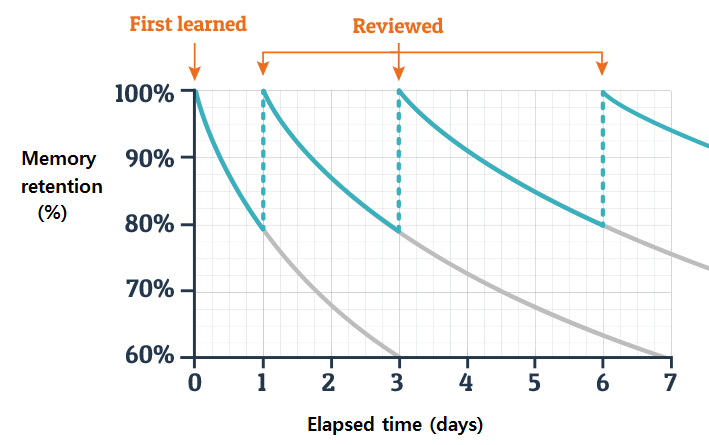Lifestyle
Warning: Self-Help Books Don’t Help! Here’s How To Enjoy The Benefits Anyway
By now, you should have eternal happiness, unfailing resilience, and everything else you could want from life.
Why?
Because you’ve read all those self-help books and took at least three courses.
OK, maybe eternal happiness a bit farfetched, but you should be much happier now than before, right?
What was that?
Your life hasn’t changed for the better after reading about building a better life?
Here’s the truth:
Self-help books are as useful as high-school math.
The information they provide is valuable, but only if you put it to use.
The Fallacy of The Self-Help Industry
How many self-help books have you read in the past year?
How many courses have you signed up for?
You listen to what the gurus have to say, and think, “That is an amazing idea! This would definitely help me do X, Y, Z.”
You finish the book and your brain is filled with all these new strategies and techniques to fix the problems you face.
Then what?
2 weeks later, your life is exactly the same as it was before.
Disappointed, you buy another book or course on the same topic. Hoping that maybe this time, you’ll see results.
Why does this happen?
Sometimes, the resource is bad. I can’t tell you how many times I’ve read a self-help book that gave advice that wasn’t effective.
Yet many times, the gurus know what they’re talking about.
Where does the issue lie?
[easy-tweet tweet=”Self-help resources are only beneficial when you apply what they teach. And that’s where many people fail.” user=”shutupachieve” hashtags=”#selfHelp #TakeAction” template=”qlite”]I’m sure you’ve read self-help books that give exercises at the end of each chapter. Here’s a question for you: Do you complete them?
…
I’ll be the first to admit that I used to skip most of them.
But just learning the concepts will not change your life; you must implement the teachings, too.
This is easier said than done. How do you turn knowledge into action?
These 7 life-changing strategies will make it possible:
1. Convert Theory into Practice

I’m in the middle of a book about attention. So far, I’ve learned that there are different types of attention and each type involves different areas of your brain.
While the research is interesting, knowing this doesn’t help me focus more.
The only way I can benefit from what I’ve learned is to distill that knowledge into actionable steps.
Here’s what I mean:
The book explains that the amygdala (a region in our brains) is activated when we are afraid. It’s the reason you can think of nothing other than the immense terror you are feeling.
Yet, activating a second region in the brain which is responsible for our thoughts, the prefrontal cortex, silences the amygdala and takes back the reigns of your attention.
To put the science into practical terms would be to say: to calm my anxiety, I will recall an old memory, that is, use my prefrontal cortex. (Source)
Many resources give you the science without telling you directly how to implement it. To use it, contemplate what the science means to you. How can you apply this knowledge in your life?
When devising the actionable steps, keep them short like I did in the example above. Cut out the fluff and tell yourself exactly how you will apply this information in your life using verbs and tangible words.
You get bonus points for visualizing when you’ll use it, as well.
2. Summarize the Key Points

Although books are usually 200-400 pages long, the relevant points can be summarized on a page or two.
The rest is filled with examples, stories, and fillers.
Thus, the important information gets buried in the fluff or even worse, forgotten by the time you’ve finished reading.
Luckily, there’s an easy fix to this:
At the end of each chapter, write a summary of the most important points. Again, think about how this knowledge can be harnessed to enhance your life. Write that down, too.
These summaries will help you create your plan of action once you’re done reading. They will remind you of the ways to reap the rewards the book has promised you.
Taking notes and summarizing the key points of each book you read is cumbersome. And let’s be honest: you probably won’t go back to read them. How to Take Smart Notes: One Simple Technique to Boost Writing, Learning and Thinking explains how to take simple, yet effective notes.
3. Learn with Purpose

Why are you learning?
Is there a hurdle in your life you are trying to overcome?
How will gaining this knowledge help you do that?

You learn best when you have a reason to learn and the opportunities to immediately put the principles into practice.
Furthermore, applying what you learn is a foolproof way to avoid forgetting it.
The German psychologist Hermann Ebbinghaus discovered ‘The Forgetting Curve’ which shows how quickly you forget what you learn if you don’t use or review it.
If you don’t use the information within 6 days, you’ll forget 75% of it.
Before you start learning anything, take a moment to think why you want this knowledge and how you’ll use it.
4. Give It Away

Here’s a fun fact about potty training toddlers:
One of the quickest ways to teach them to use a toilet is to have them teach it to a doll.
This technique isn’t just for toddlers though (well, the potty-training part is.)
Itzhak Perlman put it best:
Never miss an opportunity to teach; when you teach others, you teach yourself.
Many things aren’t appliable in day-to-day life. The next best way to use that knowledge and avoid forgetting it is to share it with others.
Share the lessons you’ve learned with a friend or write a post elaborating the findings on Facebook or Twitter. (And while you’re there, follow me 😉).
The second benefit to doing this is that you ensure you completely comprehend the concepts, and if not, you have the awareness to fill in the gaps in your understanding.
“If you can’t explain it simply, you don’t understand it enough.” – Albert Einstein.
5. Take it Slow

You’re reading a book called “500 Hundred Ways to Achieve Greatness.”
You finish the book, and how many ways do you implement?
Two or three at most.
With so many different techniques, you can’t put all of them into practice at once, and chances are you’ve forgotten most of them anyway.
So, what do you do to make the most of the book?
Read the book at turtle pace. Read one technique, embody it, practice, then move on to the next.
I’m sure you’re thinking, ‘but if I do that, it’ll take months to finish the book!’
There are people who take pride in reading 52 books per year, one a week. Yet, if you don’t change your life because of it, what’s the point?
Honestly, I’d rather read 1 book a year and transform my life than read many books that have no effect on the way I live.
6. Make It Your Own

You read a book, but the information is still the author’s.
You need to make these teachings your own if you want to see the results in your life.
How?
You underline, you highlight, and you take notes.
When a sentence or paragraph speaks to you, mark it. Write a note in the margin about how and why it resonates with you. Take the information and write it in your own words.
You learn a lot more and the knowledge sticks better if you make learning an active process instead of a passive one.
Annotating your books has an extra advantage: if you revisit the book in the future, you’ll know which parts are important and which can be skipped over.
Reading is passive. Watching a lecture is passive. Do some brain work and dispute the author’s words instead of passively agreeing. Think about why the ideas make sense, and what they mean for you personally.
7. Measure your Progress

You read a book about improving your social skills. How do you know it had an effect?
Even if you employ the techniques, you won’t know if they had the desired impact.
The only way to find out is to track your starting point, then look for a change.
“That which cannot be measured cannot be proven.” ― Anthony W. Richardson
Once you’re done reading a book, set a metric to track your progress.
For the social skills book, your metric could be the number of new people you talk to per week or the number of times you speak up when you feel like keeping to yourself.
Once you start paying attention, you’ll see the changes in your life. Seeing those changes will improve your self-image and you’ll believe more in your social capabilities, creating a positive feedback loop.
Knowledge Alone Isn’t Power
Without action, knowledge is pointless.
You can read all the self-help books out there and take all the courses ever made, but if you don’t put them into practice, your life won’t change.
Next time, you pick up a book, let it transform you. Chew the knowledge and make it your own. Turn it into something you can act upon, then measure your progress.
Trust me, the results will be worth it.
(Want to know why you don’t do what you know you should? Click here.)

